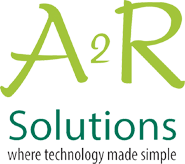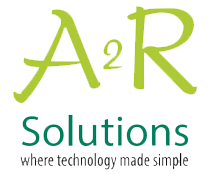
Payroll management System – A Comprehensive Guide
Introduction
In today’s fast-paced business world, payroll management is a critical aspect of running a successful organization. This article will walk you through the intricate process of payroll, from its definition to the challenges it poses and the available solutions.
What is Payroll?
Defining Payroll
Payroll refers to the process of calculating and distributing compensation to employees for their work. It encompasses various components, such as salaries, wages, bonuses, and deductions, ensuring that employees receive their rightful earnings.
Importance of Payroll
Accurate and timely payroll processing is vital as it not only ensures employees are paid correctly but also helps in compliance with tax regulations and labor laws.
Stages to Processing Payroll
Pre-Payroll Activities
Before diving into payroll processing, a series of preparatory steps are necessary. This includes gathering employee information, setting up payroll accounts, and establishing tax withholding.
Actual Payroll Process
The core of payroll processing involves calculating earnings, factoring in deductions and taxes, and generating paychecks or direct deposits. It’s a meticulous task requiring precision and attention to detail.
Post-Payroll Process
Once the paychecks are distributed, post-payroll activities come into play. This involves record-keeping, tax reporting, and addressing any discrepancies or issues that may arise.
Challenges in Handling Payroll Management Process
Complexity of Regulations
Payroll processing is laden with legal and tax regulations. Keeping up with these ever-changing rules can be challenging, leading to compliance issues if not managed properly.
Data Security
Protecting sensitive employee data is paramount. The risk of data breaches and identity theft makes it essential to have robust security measures in place.
Time-Consuming
Payroll processing can be time-consuming, especially for larger organizations with numerous employees. This can divert resources from other critical tasks.
Various Methods Available to do Payroll for your Business
Manual Payroll
Some small businesses still opt for manual payroll processing, which involves tedious calculations and handwritten checks. While cost-effective, it’s prone to errors.
Outsourcing Payroll
Many businesses choose to outsource their payroll to specialized companies. This streamlines the process, ensures compliance, and allows in-house staff to focus on core activities.
Payroll Software
Modern technology offers payroll software solutions. These tools automate the process, reducing errors and saving time. They often come with features like direct deposit and tax compliance checks.
Features of Best Payroll Software for your Organization
User-Friendly Interface
The best payroll software should be easy to navigate, even for those without a strong financial background.
Tax Compliance
It should stay up-to-date with tax regulations, ensuring your business remains in good legal standing.
Reporting Capabilities
Comprehensive reporting features help track expenses and make informed financial decisions.
Scalability
Payroll software should be adaptable to your organization’s growth, accommodating an increasing number of employees.
Support and Training
Top-notch customer support and training resources can be invaluable when issues arise.
Conclusion
Payroll is a vital aspect of any business, and understanding its intricacies is essential for smooth operations. Whether you choose manual processing, outsourcing, or payroll software, ensuring accuracy and compliance should be your top priority.
A2RSolutions is the best IT Software Company in Dubai, specializing in providing top-quality accounting software, including Sage Partners in Dubai. We offer comprehensive online accounting software for small business Dubai, along with we are best HR & Payroll Software Companies in Dubai. Simplify your business operations with our cutting-edge software tailored for companies in Dubai. We provide sage 50 accounting software Dubai at best pricing.



